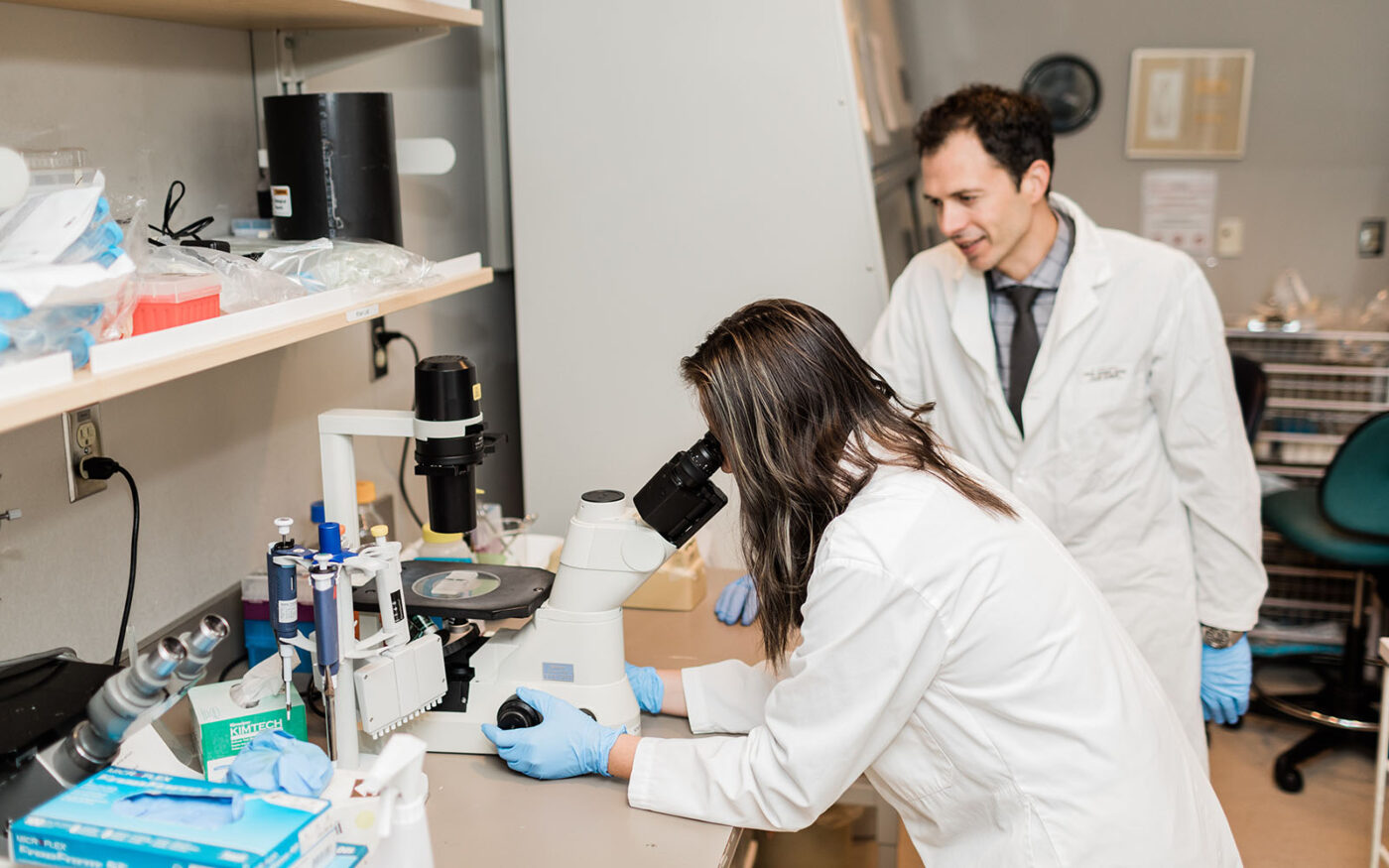Creating Timely Access to Care
Since its inception, the PCBC’s Rapid Access Clinic has streamlined patient care and significantly reduced the time between diagnosis and treatment for patients — minimizing stress and improving outcomes.
The clinic supports patients by:
- consolidating specialist consults in a single day;
- expediting testing;
- performing cutting-edge genetic profiling at the time of diagnosis, leading to tailored therapies for each individual patient and;
- creating an invaluable support network of nurse practitioners that guide patients through the process and help coordinate appointments with other specialists.
Increasing Expertise to Support Patients
Thanks to donor investment and Dr. Renouf’s inspiring leadership, pancreatic cancer research and care is now an exciting potential-filled field of focus at BC Cancer. New additions to the team include:
- Medical oncology fellows to lead collaborative clinical research projects.
- A genetic counsellor to support patients and families at risk of inherited pancreatic cancer.
- A biobank technologist to run and maintain the pancreatic biobank, established in 2015 – it contains more than 325 samples to assist studies to better understand genetic changes in the disease.
- A project manager to oversee research and facilitate the development of new projects.
- A Pancreatic Rapid Access Clinic care coordinator to streamline services and provide in-depth patient support.
- A translational nurse to facilitate hereditary cancer testing for patients and ensure they have access to clinical trials.
Innovation and Advancements Right Here at Home
At the forefront of pancreatic cancer research breakthroughs, Dr. Renouf’s team published a study on a deficiency which occurs when the body is unable to repair breaks in DNA. The homologous recombination deficiency (HRD) can be a characteristic of certain cancers and it may have potential as a tool for early detection of pancreatic cancer.
Another discovery occurred when the team identified that KRAS mutations are absent in approximately 10% of the people with the mPDAC subtype of pancreatic cancer — this is informing effective therapies beyond standard chemotherapy, including two new drugs, which could be tested in future clinical trials.
A trial which investigated adding immunotherapy to the treatment of people with mPDAC is showing promise for people with early-stage disease. Dr. Renouf’s team plans to use pancreatic tissue collected from this trial to help identify additional subgroups which may benefit from immunotherapy.
Another trial, MAESTRO, is using genomic sequencing to categorize patients into specific groups based on shared characteristics of their disease. As the team uncovers more pancreatic cancer subtypes, they will help identify the most effective therapies for each person.
“It’s studies such as these that will enable pancreatic cancer to truly enter the era of precision medicine,” says Dr. Renouf.
Leading the Way in Decoding Inherited Disease
A $7.5 million grant is supporting a new initiative to help build a national network for pancreatic cancer research. As part of this grant, BC Cancer – Vancouver’s Dr. Intan Schrader is the lead investigator for the PRECEDE Consortium, a 10,000-patient cohort study which aims to improve early detection and screening for people at high hereditary risk of pancreatic cancer.
By looking into innovative blood and urine detection methods, this research has the potential to change the standard of care.
Assisting discoveries in the hereditary cancer program is a first-in-the-world technology — developed in B.C. — that informs, with a high degree of accuracy, which chromosomes come from the mother’s or father’s side. This information is changing the understanding of hereditary cancer risk and helping determine which family members need to pursue testing.
Thanks to the identification of a BReast CAncer gene (BRCA) mutation, an inherited fault in the gene that creates a higher risk of certain cancers including pancreatic, a BC Cancer patient was offered chemotherapy and drugs specific to their disease and is now alive and well five years after being diagnosed with metastatic cancer.
Progress like this is just the beginning as more expertise, research and advances in hereditary cancer care provide real hope in improving outcomes in this long elusive disease.
